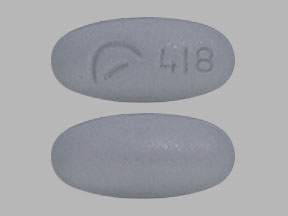
Ranolazine ER Coupons & Savings Card – Discount Prices from $42.68
Generic for: Ranexa, Aspruzyo sprinkle
My prescription
Edit
500MG, Ranolazine ER (180 Tablet Extended Release 12 Hours)
Select pharmacy

CVS
$42.68
COUPON PRICE
Albertsons
$44.72
COUPON PRICE
Walgreens
$48.78
COUPON PRICE
Walmart
$56.64
COUPON PRICERanolazine ER savings card
Show this card to your pharmacist
CVS
$42.68
BIN
ID
PCN
GRP
019876
LH975AA9EA
CHIPPO
LHX
Powered by
More prescriptions for angina
More prescriptions for angina
Price history for Aspruzyo Sprinkle (brand) & Ranolazine ER (generic)
180 Tablet Extended Release 12 Hours, 500MG
Average retail price for Aspruzyo Sprinkle
Average retail price for Ranolazine ER
Average SaveHealth price for Ranolazine ER
Our price history data is based on aggregated prescription data collected from participating pharmacies in America. Our prescription data updates daily to reflect the latest price changes. If you notice a missing data point, it means there wasn't sufficient data available to generate a monetary value for that date.
We analyzed Ranolazine ER prices for (500MG, 180 Tablet Extended Release 12 Hours) over the last 12 months. The average retail price was $158.79, while the average price using the SaveHealth discount card was $73.33. That's a savings of approximately 53.82% when using our Ranolazine ER coupon.
Compared to the generic version, Aspruzyo Sprinkle had an average price of $591.62 over the same time period. With the SaveHealth savings card, Ranolazine ER is 87.61% cheaper on average than Aspruzyo Sprinkle.
*Retail prices are based on pharmacy claims data, and may not be accurate when we don't have enough claims.
Ranolazine ER dosage forms
Dosage Quantity Price from Per unit 500MG 180 Tablet Extended Release 12 Hours $42.68 $0.24 500MG 1 Tablet Extended Release 12 Hour $2.76 $2.76 500MG 30 Tablet Extended Release 12 Hours $10.44 $0.35 500MG 50 Tablet Extended Release 12 Hours $15.73 $0.32 500MG 60 Tablet Extended Release 12 Hours $18.38 $0.31 500MG 90 Tablet Extended Release 12 Hours $24.39 $0.27 500MG 100 Tablet Extended Release 12 Hours $26.10 $0.26 500MG 120 Tablet Extended Release 12 Hours $29.22 $0.24 500MG 500 Tablet Extended Release 12 Hours $71.80 $0.14 500MG 1800 Tablet Extended Release 12 Hours $190.10 $0.11
| Dosage | Quantity | Price from | Per unit |
|---|---|---|---|
| 500MG | 180 Tablet Extended Release 12 Hours | $42.68 | $0.24 |
| 500MG | 1 Tablet Extended Release 12 Hour | $2.76 | $2.76 |
| 500MG | 30 Tablet Extended Release 12 Hours | $10.44 | $0.35 |
| 500MG | 50 Tablet Extended Release 12 Hours | $15.73 | $0.32 |
| 500MG | 60 Tablet Extended Release 12 Hours | $18.38 | $0.31 |
| 500MG | 90 Tablet Extended Release 12 Hours | $24.39 | $0.27 |
| 500MG | 100 Tablet Extended Release 12 Hours | $26.10 | $0.26 |
| 500MG | 120 Tablet Extended Release 12 Hours | $29.22 | $0.24 |
| 500MG | 500 Tablet Extended Release 12 Hours | $71.80 | $0.14 |
| 500MG | 1800 Tablet Extended Release 12 Hours | $190.10 | $0.11 |
| 500MG | 3600 Tablet Extended Release 12 Hours | $353.90 | $0.10 |
| 1000MG | 1 Tablet Extended Release 12 Hour | $2.82 | $2.82 |
| 1000MG | 30 Tablet Extended Release 12 Hours | $12.03 | $0.40 |
| 1000MG | 60 Tablet Extended Release 12 Hours | $21.57 | $0.36 |
| 1000MG | 90 Tablet Extended Release 12 Hours | $31.10 | $0.35 |
| 1000MG | 100 Tablet Extended Release 12 Hours | $34.28 | $0.34 |
| 1000MG | 120 Tablet Extended Release 12 Hours | $37.48 | $0.31 |
| 1000MG | 180 Tablet Extended Release 12 Hours | $55.06 | $0.31 |
| 1000MG | 500 Tablet Extended Release 12 Hours | $106.20 | $0.21 |
Ranolazine ER Warnings
When using ranolazine, it is important to be aware of potential interactions with other medications that could influence how the drug is metabolized and its effectiveness. Here are some key points to consider:
- Medications like azole antifungals (e.g., itraconazole, ketoconazole) may impact the breakdown of ranolazine.
- Antibiotics such as clarithromycin and drugs like cobicistat might alter how ranolazine functions in the body.
- Certain antidepressants, including nefazodone, can affect ranolazine's removal.
- HIV protease inhibitors, like nelfinavir and ritonavir, are known to interact with ranolazine.
- Rifamycins, such as rifabutin and rifampin, might interfere with the drug's metabolism.
- Seizure medications, including carbamazepine, phenobarbital, and phenytoin, may also have an impact.
- Herbal supplements like St. John's wort can influence the effectiveness of ranolazine.
Always consult your healthcare provider before starting or stopping any medication to ensure safe use of ranolazine.
Ranolazine ER Side Effects
Common side effects:
- Dizziness
- Headache
- Lightheadedness
- Nausea
- Tiredness
- Constipation
Less common but important to monitor:
- Changes in urine output
Serious side effects:
- Fainting
- Severe dizziness
- Fast or irregular heartbeat
- Rash
- Itching
- Swelling of face, tongue, or throat
- Difficulty breathing
